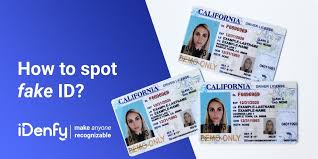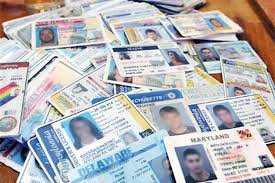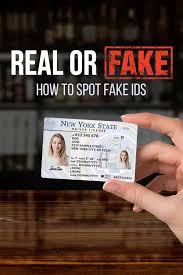Novelty IDs
Outline
- Introduction to Novelty IDs
- What are Novelty IDs?
- Brief history and evolution
- Purpose and popular uses
- Understanding the Product Features
- Materials and durability
- Design possibilities: Colors, graphics, text, and photo integration
- Enhanced features: Holograms, barcodes, and magnetic strips
- Packaging and optional accessories
- Customization Options
- Step-by-step guide to creating a custom Novelty ID
- Available templates vs. bespoke designs
- Adding personal details and special effects
- Options for bulk orders
- Market Analysis
- Industry growth and trends
- Key players and competitive landscape
- Popular categories of Novelty IDs and their demand
- Target Audience for Novelty IDs
- Demographics and psychographics
- Primary vs. secondary target markets
- Key use cases: Events, gifts, parties, and more
- Advantages of Novelty IDs
- Personalization and unique identity
- Affordability and accessibility
- Versatility for various occasions
- Easy online ordering process
- Potential Challenges and Solutions
- Quality concerns and how to address them
- Avoiding misuse and ensuring ethical use
- Common customer pain points and solutions
- Conclusion: The Future of Novelty IDs
- Innovations on the horizon
- Trends in customization and personalization
- Final thoughts on embracing Novelty IDs for fun, gifts, and self-expression
Detailed Expansion of Sections
1. Introduction to Novelty IDs
Novelty IDs are custom-made identification cards or licenses that serve a purpose beyond typical ID cards. Unlike government-issued IDs, Novelty IDs are usually crafted for fun, entertainment, or as a way to express personality and creativity. These IDs might resemble real licenses, such as a driver’s license or employee badge, but are purely for amusement or symbolic purposes.
Originating as gag gifts or souvenirs, Novelty IDs have evolved to become popular items for a variety of occasions, including parties, themed events, and even corporate gatherings. Some examples include “Superfan IDs” for sports enthusiasts, “VIP Badges” for events, and “World’s Best Dad” licenses as gifts.
2. Understanding the Product Features
Novelty IDs can be created using a range of materials, with PVC plastic being the most common due to its durability and resemblance to official ID cards. Some key features include:
- Material Quality: High-quality plastic and laminates to ensure durability.
- Customization Options: From color choices to fonts and graphics, virtually every part of the Novelty ID can be customized.
- Security-like Elements: Holograms, barcodes, and magnetic strips add an authentic feel, although they serve no actual functional purpose.
- Accessorizing Options: Lanyards, ID clips, and badge holders to enhance usability.
3. Customization Options
The customization aspect is a major appeal of Novelty IDs. Here’s how the customization process typically unfolds:
- Choosing a Template: Many providers offer pre-made templates, such as “Press Pass,” “Event Staff,” or “VIP Access.”
- Personalizing Details: Users can add their name, a chosen photo, unique titles, and other details.
- Selecting Features: Options for adding holograms, choosing specific colors, and embedding unique graphics are often available.
- Finalizing the Order: With most online platforms, users can preview their design, make adjustments, and proceed to order once satisfied.
4. Market Analysis
The Novelty ID industry has seen steady growth, fueled by the increasing popularity of personalized gifts and memorabilia. Key trends include:
- Increasing Demand for Personalization: With consumers seeking unique, customized products, Novelty IDs cater to a market that values individuality.
- Expansion into Online Retail: Most Novelty ID vendors operate online, allowing for wider reach and easier access to custom options.
- Diverse Applications: Novelty IDs are no longer limited to individual consumers; corporate clients are increasingly using them for events and marketing purposes.
5. Target Audience for Novelty IDs
Novelty IDs appeal to a diverse audience. The primary demographic includes individuals aged 18-35 who enjoy novelty items and personalized gifts. However, corporate clients and event organizers also make up a significant portion of the market, using Novelty IDs for event access, promotional items, and as branding tools.
Use Cases:
- Parties and Events: As giveaways or as part of themed events.
- Corporate Events: As part of branding efforts or employee engagement activities.
- Personal Gifts: Customized for special occasions like birthdays, holidays, or graduations.
6. Advantages of Novelty IDs
The versatility of Novelty IDs allows them to be used in numerous contexts. Some of the primary advantages include:
- Unique and Personalized: Offers the chance to create something unique and personal.
- Affordable: Compared to many other personalized gifts, Novelty IDs are relatively inexpensive.
- Versatile: Suitable for both personal and corporate use.
7. Potential Challenges and Solutions
A common concern with Novelty IDs is ensuring quality, especially when purchasing online. To address this, companies often provide detailed previews and guarantees on material quality. Additionally, there’s a need to educate consumers on ethical usage, emphasizing that Novelty IDs should not be used in any illegal or deceptive manner.
8. Conclusion: The Future of Novelty IDs
With innovations in customization technology, Novelty IDs will continue to evolve, offering more personalized options and unique features. As consumers increasingly seek unique, memorable ways to express themselves, Novelty IDs will remain a creative and versatile option for a range of occasions. Whether for fun, gifting, or branding, Novelty IDs present an exciting opportunity to explore individuality and add a personal touch to any event.
 Novelty ID
Novelty ID
 Student engagement tools
Student engagement tools
 Online ID services
Online ID services
 Realistic holograms and securi
Realistic holograms and securi